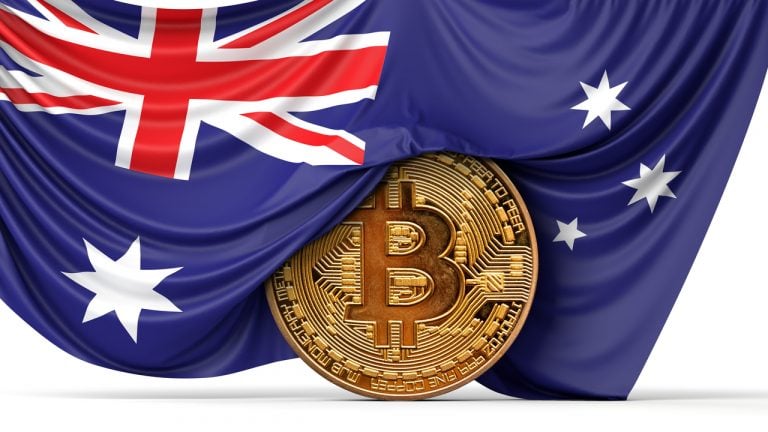 The Indian government, through a panel headed by the Secretary of the Department of Economic Affairs (DEA), is expected to release a consultation paper on cryptocurrency regulations. The paper, scheduled for release between September and October 2024, will seek input from stakeholders to gather feedback on effective regulation. India is emphasizing the importance of international […]
The Indian government, through a panel headed by the Secretary of the Department of Economic Affairs (DEA), is expected to release a consultation paper on cryptocurrency regulations. The paper, scheduled for release between September and October 2024, will seek input from stakeholders to gather feedback on effective regulation. India is emphasizing the importance of international […] According to Nagel Paulino, head of the Central Bank’s regulatory department, the Central Bank of Brazil hopes to finalize cryptocurrency market regulations by 2025. The institution will conduct a second public consultation to finalize the drafts, hearing the opinions of market participants in order to tailor these rules to local needs. Central Bank of Brazil […]
According to Nagel Paulino, head of the Central Bank’s regulatory department, the Central Bank of Brazil hopes to finalize cryptocurrency market regulations by 2025. The institution will conduct a second public consultation to finalize the drafts, hearing the opinions of market participants in order to tailor these rules to local needs. Central Bank of Brazil […]
The Australian government suddenly announced a new eight-week consultation to ask how heavily it should police the AI sector.
The Australian government has announced a sudden eight-week consultation that will seek to understand whether any “high-risk” artificial intelligence tools should be banned.
Other regions, including the United States, the European Union and China, have also launched measures to understand and potentially mitigate risks associated with rapid AI development in recent months.
On June 1, Industry and Science Minister Ed Husic announced the release of two papers — a discussion paper on “Safe and Responsible AI in Australia” and a report on generative AI from the National Science and Technology Council.
The papers came alongside a consultation that will run until July 26.
The government is wanting feedback on how to support the “safe and responsible use of AI” and discusses if it should take either voluntary approaches such as ethical frameworks, if specific regulation is needed or undertake a mix of both approaches.

A question in the consultation directly asks, “whether any high-risk AI applications or technologies should be banned completely?” and what criteria should be used to identify such AI tools that should be banned.
A draft risk matrix for AI models was included for feedback in the comprehensive discussion paper. While only to provide examples it categorized AI in self-driving cars as “high risk” while a generative AI tool used for a purpose such as creating medical patient records was considered “medium risk.”
#AI is already part of our lives. As the technology develops, we need to ensure it meets Australians’ expectations of responsible use. Be part of the @IndustryGovAu discussion, below. https://t.co/Gz11JCXlsG
— Australia's Chief Scientist (@ScienceChiefAu) June 1, 2023
Highlighted in the paper was the “positive” AI use in the medical, engineering and legal industries but also its “harmful” uses such as deepfake tools, use in creating fake news and cases where AI bots had encouraged self-harm.
The bias of AI models and “hallucinations” — nonsensical or false information generated by AI’s — were also brought up as issues.
Related: Microsoft’s CSO says AI will help humans flourish, cosigns doomsday letter anyway
The discussion paper claims AI adoption is “relatively low” in the country as it has “low levels of public trust.” It also pointed to AI regulation in other jurisdictions and Italy’s temporary ban on ChatGPT.
Meanwhile, the National Science and Technology Council report said that Australia has some advantageous AI capabilities in robotics and computer vision, but its “core fundamental capacity in [large language models] and related areas is relatively weak,” and added:
“The concentration of generative AI resources within a small number of large multinational and primarily US-based technology companies poses potentials [sic] risks to Australia.”
The report further discussed global AI regulation, gave examples of generative AI models, and opined they “will likely impact everything from banking and finance to public services, education and creative industries.”
AI Eye: 25K traders bet on ChatGPT’s stock picks, AI sucks at dice throws, and more

Canadians are being asked what features they wish to see in a digital Canadian dollar even though there are no plans yet to issue one.
Canadians are being asked to submit what features they want to be included in a potential digital Canadian dollar, with the country’s central bank opening a consultation to the public.
On May 8, the Bank of Canada (BoC) launched a public consultation that will run until June 19, noting it’s exploring a virtual loonie as “the world becomes increasingly digital.”
The BoC’s senior deputy governor Carolyn Rogers said in a statement the bank wants to hear what Canadians “value most in the design of a digital dollar” to help it make choices relating to its security and reliability along with ensuring it “meets the needs of Canadians.”
Hey Canada, we need your input!
— Bank of Canada (@bankofcanada) May 8, 2023
Our public consultation on a potential #DigitalCanadianDollar is now LIVE. #HaveYourSay by June 19: https://t.co/p8BdG3tQ9h pic.twitter.com/vKRoBfAngu
The bank was quick to state that it's not starting work on a central bank digital currency (CBDC) and wasn’t looking to replace cash if it does.
“At this time, a digital Canadian dollar is not needed. And any decision to issue one rests with Parliament and the Government of Canada.”
“Cash isn’t going anywhere,” the BoC added. It said, however, that many Canadians could be excluded from the economy in the future if the use of banknotes falls.
If a CBDC was issued, physical notes would still be provided “for those who want them” the bank said.
The BoC also outlined the possibility that cryptocurrencies or foreign CBDCs “could become widely used in Canada.”
It claimed this scenario could compromise the Canadian dollar and “pose a risk to the stability of our financial system.”
Related: Retail CBDCs bring unknown ‘consequences’ to financial system — IMF director
The consultation’s questionnaire asks Canadians a wide range of questions including the payment methods they’ve used in the last month, how often they would potentially use a Canadian CBDC and what design features they wish to see.
It also specifically asks if the survey taker uses or holds cryptocurrencies and features a range of demographic questions about gender, age, education and income.

The BoC said it will publish a report summarizing the consultation “later this year.”
Hall of Flame: Crypto Wendy on trashing the SEC, sexism, and how underdogs can win

The proposed regulatory changes seek to simplify how DeFi returns are taxed and reduce the “administrative burden” for taxpayers.
The tax treatment of lending and borrowing on decentralized finance (DeFi) protocols could soon be changed in the United Kingdom, as the taxation arm of the Treasury is seeking input on a possible new regime.
An April 27 consultation by HM Revenue and Customs will run until June 22 and asks for “investors, professionals and firms engaged in DeFi activities” along with representative bodies and think tanks to submit their views on the government's proposed DeFi tax treatment.
Under the proposed legislative changes, crypto used in DeFi transactions wouldn’t be treated as a disposal for the purposes of tax, which usually trigger a Capital Gains Tax (CGT) event.
Instead, CGT would apply — and a taxable event would occur — when cryptocurrencies are disposed of in a non-DeFi transaction.

According to the consultation, a transaction must meet certain criteria to be considered a DeFi transaction.
Specifically, it should involve the initial transfer of crypto assets from a lender to a borrower, or through a smart contract, with the borrower being obligated to return the tokens.
HMRC Update on DeFi Guidance
— Jme - UK Crypto Accountant (@CryptoTaxJme) April 27, 2023
I will take time to digest. But here are some pieces:
1. Clear preference to options
2. They agree it needs to be changed
3. Another call for evidence #crypto #tax #accounting #hmrc https://t.co/O6VrTxNUCk
Additionally, the lender should have the right to withdraw the same amount of tokens that were initially lent or staked.
The aim of the consultation is to establish a framework that “better aligns” the taxation of cryptocurrency assets used in DeFi lending and staking transactions while making it easier for users to comply with the regulations. It noted:
“To reduce the administrative burden for participants, the new tax framework could treat all DeFi returns as being revenue in nature and charged to a new miscellaneous income charge specific for cryptoasset transactions.”
The consultation is the second stage of a five-step process, which will be followed by drafting legislation, implementing and monitoring, and ultimately, reviewing and evaluating the change.
Related: UK includes crypto investments under the Investment Manager Exemption
The British government took the first step in the process in July by soliciting feedback on the taxation of crypto asset loans and staking within the context of DeFi.
Simplifying the administrative process was again noted as the main objective as well as reducing costs for taxpayers participating in DeFi while also exploring how the tax treatment could better reflect the economic substance of these transactions.
Magazine: Best and worst countries for crypto taxes — plus crypto tax tips

Coinbase's vice president of international policy told Cointelegraph the meetings took place in Canberra and Sydney and touched on the government’s token mapping efforts.
The Reserve Bank of Australia (RBA) and Treasury have been holding private meetings with executives from Coinbase, with discussions revolving around the future of crypto regulation in Australia.
Responding to Cointelegraph’s request for comment, an RBA spokesperson confirmed recent reports that these private meetings had occurred, stating that Coinbase met with the RBA’s Payments Policy and Financial Stability departments this week, “as part of the Bank’s ongoing liaison with industry.”
Tom Duff Gordon, Coinbase’s vice president of international policy who was reported to have been flown in for the meetings, also confirmed to Cointelegraph that meetings took place with Treasury in Canberra and Sydney.
Consultation open! Today we released the token mapping consultation paper. This consultation is part of a multi step reform agenda to develop an appropriate regulatory setting for the #crypto sector. Read paper & submit views @ https://t.co/4W2msjhP9B @ASIC_Connect @AUSTRAC pic.twitter.com/OGHuZEGvDp
— Australian Treasury (@Treasury_AU) February 2, 2023
Gordon said that the meetings touched on the government’s token mapping efforts, and Coinbase also “shared insights on global best practices concerning licensing and custody.”
The Australian Treasury's token mapping exercise was announced on Aug. 22, 2022, and is aimed at categorizing digital assets in a way to work them into existing regulatory frameworks.
A consultation paper was released by the Treasury on Feb. 3, for which the Treasury sought feedback from the crypto industry.
Gordon praised efforts from the Treasury, noting that “The Australian Treasury teams continue to impress us with their high level of sophistication and active involvement,” and adding:
“The Australian Treasury's token mapping exercise provides one of the most detailed and thoughtful papers we have encountered on the topic, setting a strong foundation for their forthcoming draft rules for crypto exchanges and custodians.”
Gordon expressed his desire to see the rules “later this year,” adding that he appreciated “the Treasury's comprehensive groundwork.”
In contrast, Coinbase’s co-founder and CEO Brian Armstrong has been critical of the approach to crypto regulation in the United States, echoing accusations that the Securities and Exchange Commission (SEC) is “regulating by enforcement” and claiming that the SEC wants firms to register with them despite there being no way to register.
Well said. There was no way to register (a disingenuous offer).
— Brian Armstrong (@brian_armstrong) February 9, 2023
“Using enforcement actions to tell people what the law is in an emerging industry is not an efficient or fair way of regulating.” https://t.co/6wVZZbQt23
Related: National Australia Bank makes first-ever cross-border stablecoin transaction
Documents recently obtained by the Australian Financial Review under freedom of information laws suggested that crypto legislation in Australia could be dragged out past 2024 and beyond, however, as final submissions to the cabinet are not expected until late in the year.
Coinbase expanded to Australia on Oct. 4, 2022, with Coinbase’s vice president of international and business development — Nana Murugesan — telling Cointelegraph at the time that it was “very impressed with the open door that we’ve received in Canberra and with different policymakers.”
 Financial authorities in Kazakhstan are starting a public consultation on draft changes to the country’s framework for digital-asset trading. The proposals include measures to reduce risks in the crypto market and improvements to the structure of exchange platforms. Kazakhstan’s Financial Hub Seeks to Amend Its Concept for Trading Digital Assets The Astana Financial Services Authority, […]
Financial authorities in Kazakhstan are starting a public consultation on draft changes to the country’s framework for digital-asset trading. The proposals include measures to reduce risks in the crypto market and improvements to the structure of exchange platforms. Kazakhstan’s Financial Hub Seeks to Amend Its Concept for Trading Digital Assets The Astana Financial Services Authority, […]
Canada’s government stated its concerns on the risks digital assets and the digitalization of money may pose to its financial system as a reason for launching the consultation.
The Canadian federal government is set to launch a consultation on cryptocurrencies, stablecoins, and Central Bank Digital Currencies (CBDCs) as revealed in its new mini-budget.
The government's “2022 Fall Economic Statement” released on Nov. 3 by Deputy Prime Minister Chrystia Freeland works as a fiscal update in conjunction with its main yearly budget.
The statement included a small section on “Addressing the Digitalization of Money” that outlined the government’s crypto plans.
It said the rise in cryptocurrencies and money digitalization is “transforming financial systems in Canada and around the world” and the country’s financial system regulation “needs to keep pace.”
The statement opined that money digitalization “poses a challenge to democratic institutions around the world” highlighting cryptos use in sanctions avoidance and illicit activity financing both domestically and abroad.
In the statement, the government said consultations with stakeholders on digital currencies, stablecoins, and CBDCs are being launched on Nov. 3 although exactly which stakeholders will be engaged remains unclear.
The announced consultations is understood to be as part of the government’s intention to launch a “financial sector legislative review focused on the digitalization of money and maintaining financial sector stability and security,” which was part of the 2022 budget released on Apr. 7.
This review will also examine the “potential need” of a Canadian CBDC in light of these risks.
Related: Quebec's energy manager to seek government approval to stop powering crypto miners
In January protests broke out in the nation's capital of Ottawa regarding the COVID-19 vaccine mandate and restrictions in Canada with protestors migrating to crypto fundraising platforms after being kicked off competing fiat fundraising platforms.
The province of Ontario declared a state of emergency on Feb. 11 due to the protestor’s road blockades resulting in its government freezing millions in donations to protestors, at the time protestors raised around 21 Bitcoin (BTC), worth $902,000.
Prime Minister Justin Trudeau invoked the Emergencies Act on Feb.14 for the first time in Canada’s history giving him the power to freeze protesters’ bank accounts and monitor “large and suspicious transactions,” including crypto.
Two days later Canada's federal police force sent letters to several crypto exchanges demanding they stop processing transactions of more than 30 specific crypto wallet addresses linked to the ongoing protests.
 The Australian Securities and Investments Commission (ASIC) recently opened a consultation for establishing methods and best practices for regulating crypto assets. The consultation paper seeks guidance on which crypto-assets should qualify as underlying assets, and how to make this determination. The proposal could signal the emergence of new crypto-based products in the Australian market. Australian […]
The Australian Securities and Investments Commission (ASIC) recently opened a consultation for establishing methods and best practices for regulating crypto assets. The consultation paper seeks guidance on which crypto-assets should qualify as underlying assets, and how to make this determination. The proposal could signal the emergence of new crypto-based products in the Australian market. Australian […]